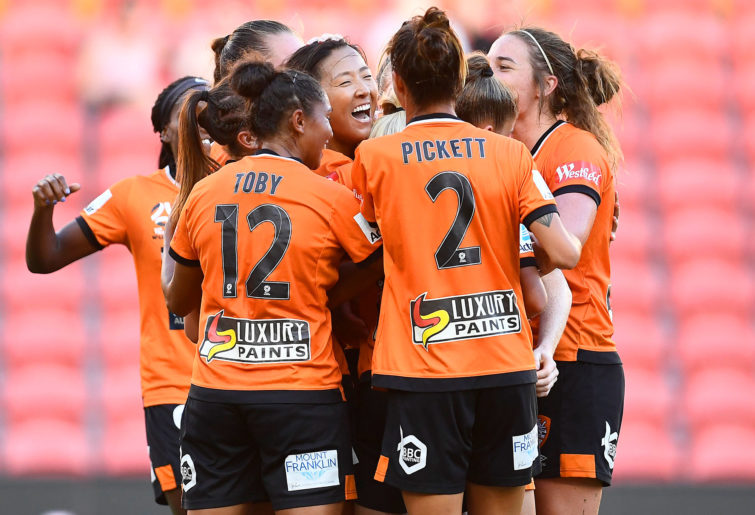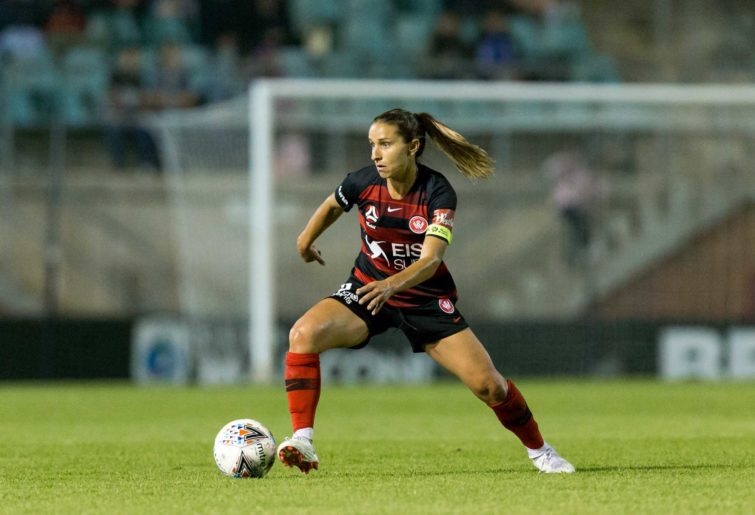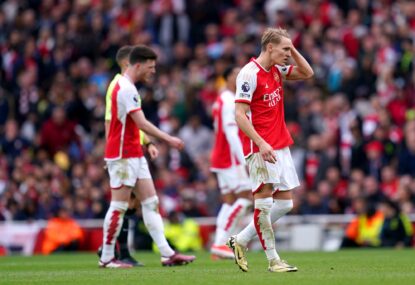The new Collective Bargaining Agreement (CBA) between the Professional Footballer Association (PFA) and the Australian Profesional Leagues (APL) has enhanced the playing conditions and remuneration for women’s players significantly.
The W-League salary cap is at $450,000, with clubs now required to spend at least $315,000 of that cap in 2021/22, with this figure increasing to $390,000 by 2025/26.
The minimum player salary is now $17,055 for the upcoming year. Players will also have access to better working conditions such as medical treatment and travel conditions.
While this is fabulous and well-deserved news for the players, the issues surrounding the remuneration and well-being of their bosses – the coaches – still has significant progress that needs to be made.
Most coaches in the W-League are still paid poorly, with many actually being paid a wage that is below the poverty line despite working full-time hours.
It is understood the average coach makes between $25-35,000 for a six-month contract, whereas the average assistant would receive around $10,000 for the six months.
The average annual salary in Australia in 2021 is $89,000 (or $44,500 for six months) according to the Australian Bureau of Statistics, while the poverty line (cost of living) sits at $22,000 per annum for a single adult and $46,500 per annum for the average family, according to The Smith Family.
During a W-League season, the coaching staff are on call seven days a week, with many working more than 40 hours a week, the equivalent of a full-time job. These hours are increased when interstate trips are factored in.
While clubs cheekily get around minimum wage rates by setting a fixed number of hours on coaching contracts that enable them to meet Fair Work Australia laws, the reality is coaches spend a significant number of ‘unpaid’ hours beyond what is stipulated in their written agreements.

(Photo by Ian Hitchcock/Getty Images)
A number of coaches who have left the W-League set-up have privately commented on the additional challenges they had due to the poor remuneration they received, especially for a job that is unstable at the best of times.
A number of coaches are required to find other – often limited – employment to fund their lifestyles and family needs. This places additional time constraints on them, which impacts their ability to dedicate more time to coaching and more importantly, their families.
Many have experienced strained relationships with partners and financial pressure on the family, which have caused them to walk away from women’s football.
The flow-on effect is that coaches who are just finding their feet, who have accumulated experience, are leaving the game just when they are starting to see their potential as a coach. This impacts players, clubs and ultimately women’s football.
Many coaches are reluctant to go on the record to discuss these issues publicly, with many lamenting the little support they get from outside sources in their battle for better conditions.
There is currently no CBA in place for coaches and no formal union like the PFA for them to join. The Football Coaches Association (FCA) provides some support to coaches and currently has over 250 members. However, they do not get formally involved in negotiating contracts or work conditions.
FCA does provide support at Fair Work Australia hearings and has designed a standard contract template for NPLW and community coaches. They also provide access to an FCA national, independent psychological services network.
However, their assistance to W-League coaches is somewhat limited and doesn’t come close to the support the PFA provides players.
The lack of financial reward for coaches is often ignored by those involved in women’s football. The excuse has always been there is not enough income or funding generated by women’s football to remunerate those involved, including players and coaches.
However, times are rapidly changing as can be seen by the new PFA deal for players.
The APL have publicly stated they are looking at $100M in equity being injected into football in the coming years. The TV deal negotiated with Paramount and Ten for the A-League/W-League and our national teams will collectively net around $250M in cash in the next five years. The TV rights to the 2023 World Cup is separate from this and will generate additional revenue.
Corporate support and government funding in light of the women’s World Cup coming to Australia and New Zealand will be received on top of these other funding streams.
In other words, there is a significant amount of money being injected into football and women’s football in particular in the coming years.
Coaches, just like players, should receive their fair share.
The W-League has been the foundation of all Matildas stars past and present. It has provided a platform for world-class players to develop their credentials and move overseas as well as be part of the international setup.

(Photo by Speed Media/Icon Sportswire via Getty Images)
With more and more coaches considering whether they want to be part of the W-League due to the poor conditions they face, the question has to be asked if the production line of future players will be impacted by this.
For every Sam Kerr or Ellie Carpenter, there are a number of footballers who rely heavily on their coaches to develop them and take their game to the next level. If the coaching standards in the W-League fall due to the best coaches walking away, this will greatly impact our future Matilda teams.
Player remuneration is vital in giving players every chance to achieve their best. But one of the most important ingredients for a player’s success is the coach or mentor who is guiding them. If they aren’t getting the best coach who has time to fully dedicate themselves to their craft, then getting the next Kerr or Carpenter becomes even harder.
There is little or no excuse now for coaches in women’s football to not be looked after properly. There is no more room for poverty in women’s football for anyone.





































































































